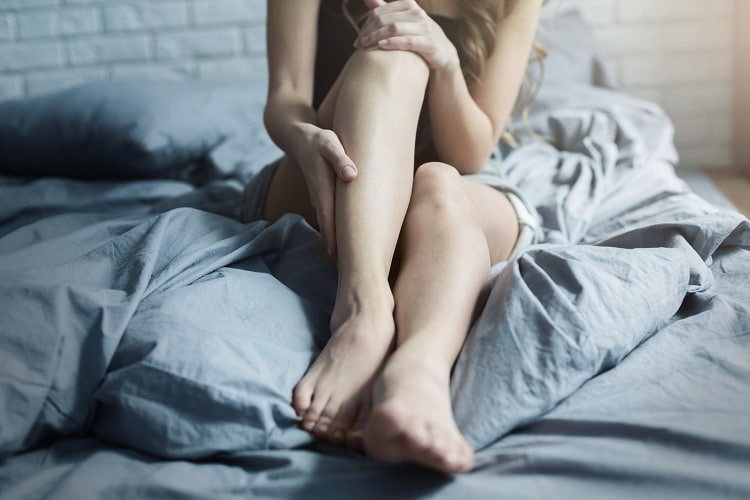
10 Sleep Improvement Quick Tips
Good, quality sleep can be hard to come by with the distractions of life. There are many different factors that can affect how quickly we fall asleep and how long we stay asleep. Here are 10 quick tips to improve your sleep!
Sleep Improvement Quick Tip #1: No screens before bed!
Did you know that our brains are hardwired to wake us up in the presence of certain wavelengths of light? Did you know that electronic screens, such as televisions, IPads, and smartphones all emit that kind of light? It’s true! In addition to stimulating our minds, watching screens before (or worse, while in) bed actually sends signals to the part of our brain that tell us it’s time to wake up. So for greater ease falling and staying asleep it’s essential to turn off all screens at least an hour before bedtime.
Sleep Improvement Quick Tip #2: Make bedtime a ritual.
Our brains just love patterns and routines. Creating a relaxing bedtime ritual trains our brains that it’s time for bed and helps us relax and get ready to fall sound asleep. What kinds of activities make good pre-bed rituals? Try relaxing, screen-free experiences like going through and turning off or dimming the lights in the house, taking a nice warm bath, meditating, and reading (just nothing too saucy!) are excellent ways to relax the body and mind for sleep. Make sure to use this same ritual each night and remember that it may take some time for your brain to catch on.
Sleep Improvement Quick Tip #3: Don’t lay awake in bed!
We’ve all been there. Tossing and turning, counting sheep (or llamas, hey, I don’t judge), checking the clock, wishing your partner would stop snoring, the list goes on. But you don’t have to lay there and sleeplessly suffer! In fact, you shouldn’t. Experts recommend that you should stay in bed trying to fall asleep for no more than around 20 minutes. The reason is that the more we lay awake in bed, the more we train our brains that bed is for laying awake, not for sleeping! So instead, if you can’t sleep after about 20 minutes get up and do something else calming – like reading or meditating – for a little while until you start to feel drowsy, then climb back in bed.
Sleep Improvement Quick Tip #4: Avoid caffeine (duh), nicotine (duh), and alcohol (huh?) before bed.
Everyone knows that caffeine and nicotine are stimulants. That’s why so many people rely on them to get them through their day. Both should be avoided at least four to six hours before bed to prevent them from interfering with our ability to fall asleep. But what many people do not know is that alcohol is also a stimulant for our brain! While alcohol will often help you fall asleep, as many wine lovers can attest, after a few hours it actually stimulates your brain, making you wake up more throughout the night and sleep more poorly overall. For sound sleep, limit your overall alcohol consumption to one or two drinks per day and avoid alcohol for at least three hours before bedtime.
Sleep Improvement Quick Tip #5: Maintain a regular sleep schedule.
I know, I know, it feels so nice to sleep in until noon on a Saturday (or more like 6:00 a.m. if you have a young child), especially when we as a society are so chronically sleep deprived. Unfortunately, keeping an irregular sleep schedule prevents our body’s “internal clock” from getting used to when it’s supposed to be sleepy time. Unfortunately for those of you who are late-night partiers on the weekends, waking up at the same time every morning – even if you didn’t sleep enough or sleep well – is one of the best ways to improve your ability to fall asleep and sleep soundly. Adulthood can be such a drag, huh?
Sleep Improvement Quick Tip #6: No late-night meals or snacking in bed.
We’re all familiar with the dozy satisfaction of having just eaten a nice (or large) meal. Unfortunately, while digestion does make us feel more tired, it will actually make it harder for you to fall or stay asleep. Want to make sure you don’t sleep well? Eat a nice big meal right before bed. For better sleep, make sure that you finish your last meal at least a couple hours before bedtime and avoid snacking in bed. If you can’t sleep at night and decide to get out of bed for a while to get a snack, make sure it’s something that is low in sugar and easy for you to digest. No spicy Indian leftovers!
Sleep Improvement Quick Tip #7: Exercise regularly, but at the right times.
As a health psychologist, I’m big on exercise! It helps regulate your mood, keeps your body in shape, and improves health. But regular exercise can also really improve your sleep! The key is to exercise at the right times, namely in the mornings, afternoons, or early evenings. Regular exercise helps regulate and deepen our sleep overall. However, exercising tends to amp us up for a few hours afterward because of the hormones it tells our brain to release. So if you’re one of those people who like to hit the gym or go for a run late at night, this may be contributing to your sleep difficulties. Instead, make sure that you exercise at least three hours before bed or earlier.
Sleep Improvement Quick Tip #8: Bedrooms should be for sleeping and sex, period!
As a health psychologist, I know that our brains excel at making associations between things. As a person with common sense, I know that people tend to really like sleeping and having sex. One of the problems of chronic sleep problems is that the bedroom becomes associated with lots of different activities: watching TV, checking Facebook, working on a laptop, or laying awake wishing you could sleep. Clean the slate! Move the TV out of the bedroom and move all non-sleeping or sexing (is that even a word?) activities to other rooms or, if you’re tight on space, at least not on the bed. When getting into bed is only associated with sleepy time (or sexy time) it helps our minds relax and our brains send signals that it’s time to fall asleep.
Sleep Improvement Quick Tip #9: No naps! Or at least keep them short and early.
In order for us to fall asleep, we all need to accrue a “sleep debt,” which lets us feel tired and ready for bed. Napping cuts into that sleep debt and leads to difficulties falling asleep, or sleeping in increasingly disjointed chunks. To keep your sleep schedule more regular, and your sleep more restful, it’s better to avoid napping at all and instead let yourself be a little more tired going into the evening. Worst case, if you simply must take a nap, try to keep them brief and before the early evening. A better alternative might be taking a brief walk outside, doing some stretching, or spending a few minutes on an enjoyable task (like playing a game) before returning to your to-do list.
Sleep Improvement Quick Tip #10: Turn your bedroom into sleep heaven!
We spend a third of our lives asleep, and yet so many of us pay very little attention to the room (and furniture) we spend this time in! A comfortable and supportive mattress and pillow goes a long way. If you have the money, a great bed is a wise investment in your overall health. Make sure your bedroom can be made to be nice and dark, and if you’re a clock-watcher then make sure you can’t see the clock from your pillow. I’ve previously discussed the importance (in Sleep Tip #8) of keeping TV’s and computers out of the bedroom and using the bed (or entire bedroom ideally) for only sleeping and sex. Finally, make sure the temperature feels comfortable for you, but err on the side of cooler versus warmer, as experts find that cooler bedrooms tend to help people sleep better. With just a little work, your bedroom can be transformed from a multi-function all-purpose room into a pleasure palace of great sleep!
Session expired
Please log in again. The login page will open in a new tab. After logging in you can close it and return to this page.
